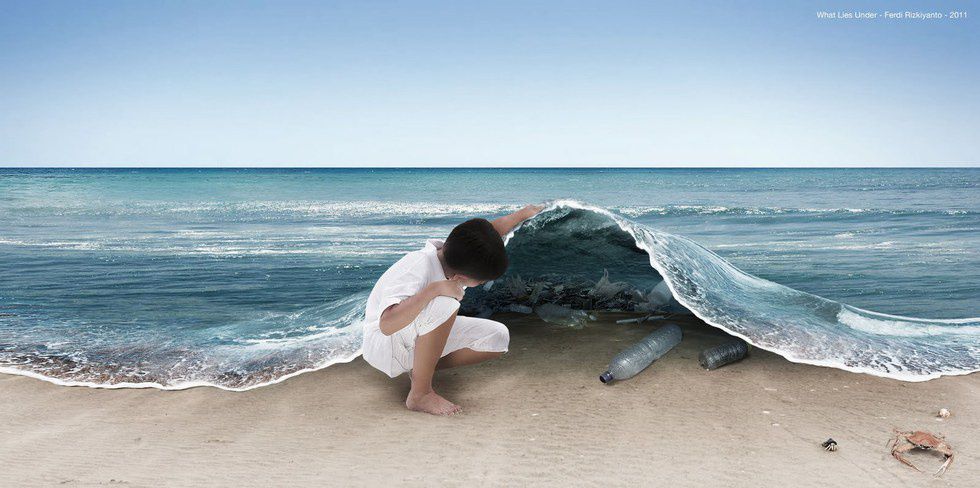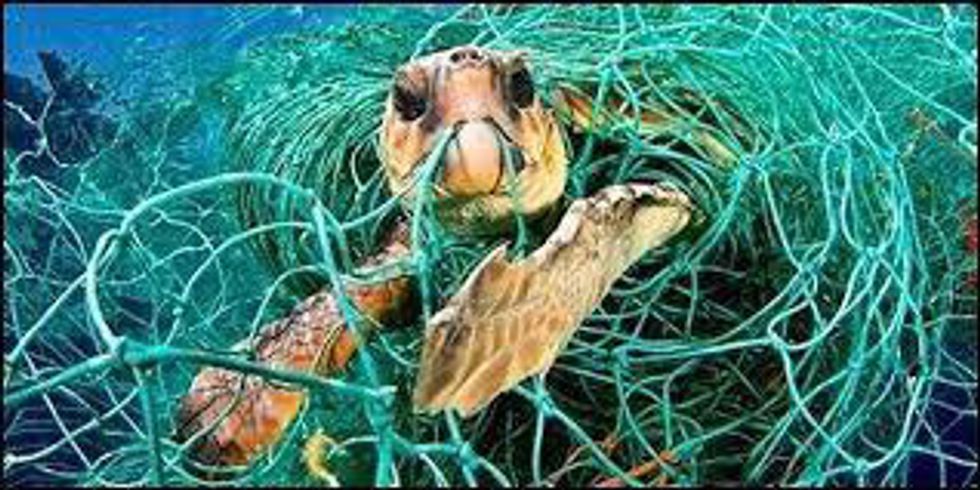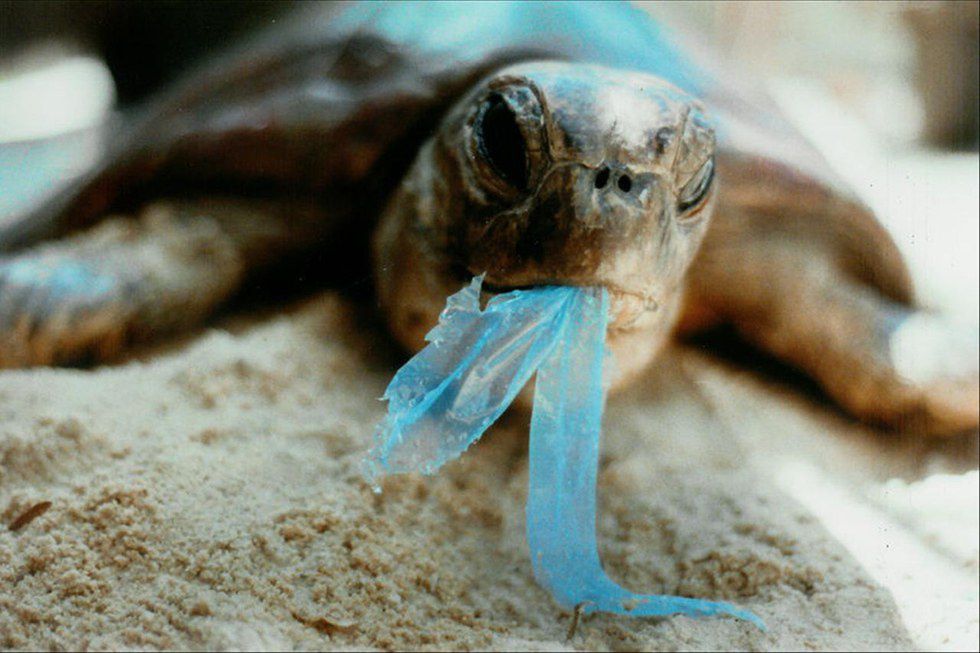People are in their own bubbles. We think about ourselves and what affects us, rarely considering how our actions and pursuits affect the world we live in. We are pre-occupied with something else, something better, something bigger, something that directly affects us.
What we should be thinking about, though, is how we affect the world around us. And how through our own interests and personal agendas, we are changing the world in a negative way. I'm not going to discuss climate change or burning fossil fuels. I am talking about how our waste is killing living things. We are killing the natural world. We are killers, and our victims are helpless.
Political affiliations aside, there is no denying that our wastefulness is damaging wildlife environments. And we should care. Why? Here's why.
Non-profit co-founder of the ocean advocacy group, 5 Gyers Institute, estimates there are 5.25 trillion pieces of trash on the surface of the ocean. This pollution has accumulated over the years, but is still pretty recent. According to the World Ocean review, in 1997 there were 6.4 million tons of trash entering the ocean annually, and these numbers are steadily increasing.
Debris and garbage enter in the ocean in a number of ways, and littering on the beach is just one of them. This garbage collects due to the ocean currents. There are five main currents where we see the most garbage accumulation. You may have heard of the "Great Pacific Garbage Patch." If you haven't or aren't very familiar with it, this is where debris are collected due to one of the five ocean currents. Debris can float on the surface, but majority actually sinks to the bottom covering the sea floor and affects deep-water marine habitats. The majority of the garbage found at this location is fishing nets. These nets can not only trap more garbage, but animals as well. These animals often die.
Plastic is another common type of garbage found in the oceans. It breaks down slowly over time, decades even, and more and more is getting disposed of in the oceans. Some plastics do not even degrade completely, but break into smaller pieces. Because of the large amounts of plastic found on the beaches and in the oceans, animals like seagulls are consuming pieces of plastic. According to the Plastic Disclosure Project, "Plastic negatively impacts over 700 species of animals and birds." Garbage accumulation affects the food web in the ocean starting at the very tiny organisms, plankton and algae. Animals who feed on these organisms, can have lower food supplies. This, in turn, affects their lives and those animals who consume them. How does this affect humans? Well damaging the Earth aside, it creates a lower supply of seafood, and higher prices. The entire food chain becomes threatened due to the disposal of garbage in the ocean. Wildlife is being killed, and habitats are being destroyed.
Why don't we just clean up the oceans, starting with the Garbage Patch? Because it is extremely expensive, and, according to National Geographic, will bankrupt any country who tries. It is also extremely challenging, as most of the debris are very small and keep breaking down into smaller pieces. It will take much time, money, and resources like people and ships that we just don't have.
So how do we fix it? Well, less pollution and more biodegradable materials would be good. But we cannot fix the damaged homes of marine life, or marine lives that were ended, or threatened because of pollution from people on land.
Our environments are dying. They are not just environments that belong to the animals who are living in it. They are our environments, too.
I'm not saying that people shouldn't care about things that directly affect them. I'm not saying that people are bad and selfish, but each one of us looks at the world through our own eyes. We make decisions based on how it affects us. We should make decisions not just because of how it directly affects us, but also how it indirectly affects us through the environment. Yes, it might sound idealistic and naive, but why shouldn't we strive for a world where animals do not show up dead on beaches because of products we consume and quickly throw away? We should care about animals. We should care about nature. We should care. I'm not telling you to care. I'm asking you to.






















